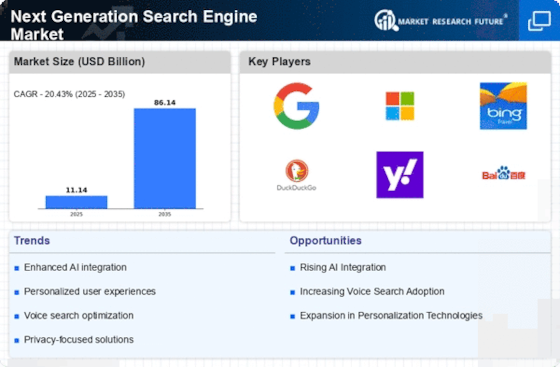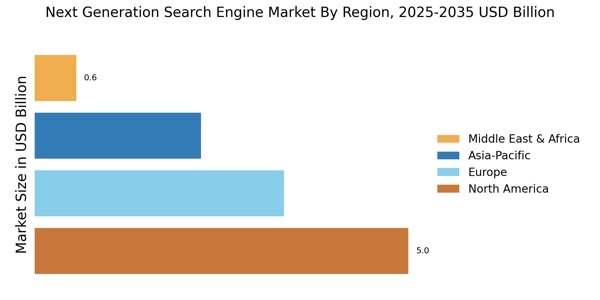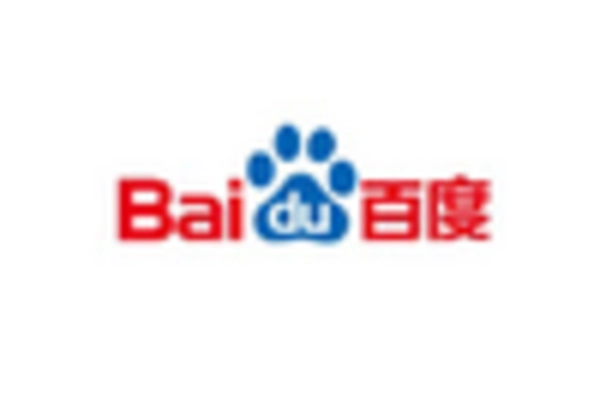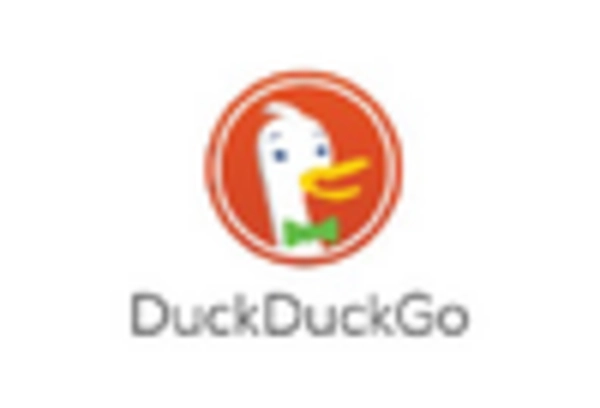Rise of Mobile Search
The Next Generation Search Engine Market is significantly influenced by the rise of mobile search, as an increasing number of users rely on smartphones and tablets for their online queries. This shift has prompted search engines to optimize their platforms for mobile devices, ensuring that search results are accessible and user-friendly on smaller screens. Data indicates that mobile search traffic has surpassed desktop traffic, accounting for over 60% of total search queries. Consequently, search engines are prioritizing mobile-first indexing and responsive design, which are crucial for maintaining visibility and relevance in an increasingly mobile-centric world. This trend underscores the necessity for search engines to adapt their strategies to cater to the preferences of mobile users.
Enhanced User Experience
The Next Generation Search Engine Market is increasingly focused on enhancing user experience through intuitive interfaces and streamlined navigation. As users demand more efficient and effective search results, search engines are evolving to provide personalized content tailored to individual preferences. This shift is evidenced by the growing adoption of user-centric design principles, which aim to reduce friction in the search process. According to recent data, user satisfaction ratings have improved significantly, with a reported increase of 30% in positive feedback for platforms that prioritize user experience. Consequently, companies are investing heavily in research and development to refine their algorithms and interface designs, ensuring that they remain competitive in the rapidly evolving landscape of search technology.
Data Privacy and Security
In the Next Generation Search Engine Market, data privacy and security have emerged as critical drivers of innovation and user trust. As concerns about data breaches and unauthorized data usage escalate, search engines are compelled to adopt robust security measures to protect user information. This trend is reflected in the implementation of end-to-end encryption and transparent data handling practices. Recent statistics indicate that 70% of users are more likely to engage with search engines that prioritize data privacy. As a result, companies are not only enhancing their security protocols but also marketing their commitment to user privacy as a competitive advantage, thereby influencing user choice and loyalty in the search engine market.
Emergence of Voice-Activated Search
The Next Generation Search Engine Market is experiencing a notable transformation with the emergence of voice-activated search technologies. As smart speakers and voice assistants gain popularity, users are increasingly turning to voice commands for their search queries. This trend is reshaping the way search engines process and deliver information, necessitating the development of algorithms that can accurately interpret natural language. Recent studies indicate that voice search is expected to account for 50% of all searches by 2026, highlighting the urgency for search engines to optimize their platforms for voice interactions. This shift not only enhances user convenience but also presents new opportunities for search engines to innovate and differentiate themselves in a competitive market.
Integration of Multimodal Search Capabilities
The Next Generation Search Engine Market is witnessing a significant shift towards the integration of multimodal search capabilities, which allow users to search using various inputs such as text, voice, and images. This evolution is driven by advancements in artificial intelligence and machine learning, enabling search engines to interpret and process diverse data types more effectively. Recent market analysis suggests that the demand for multimodal search features has surged, with a projected growth rate of 25% over the next five years. This trend not only enhances user engagement but also broadens the scope of search applications, making it essential for search engines to adapt and innovate continuously to meet evolving user expectations.


















Leave a Comment